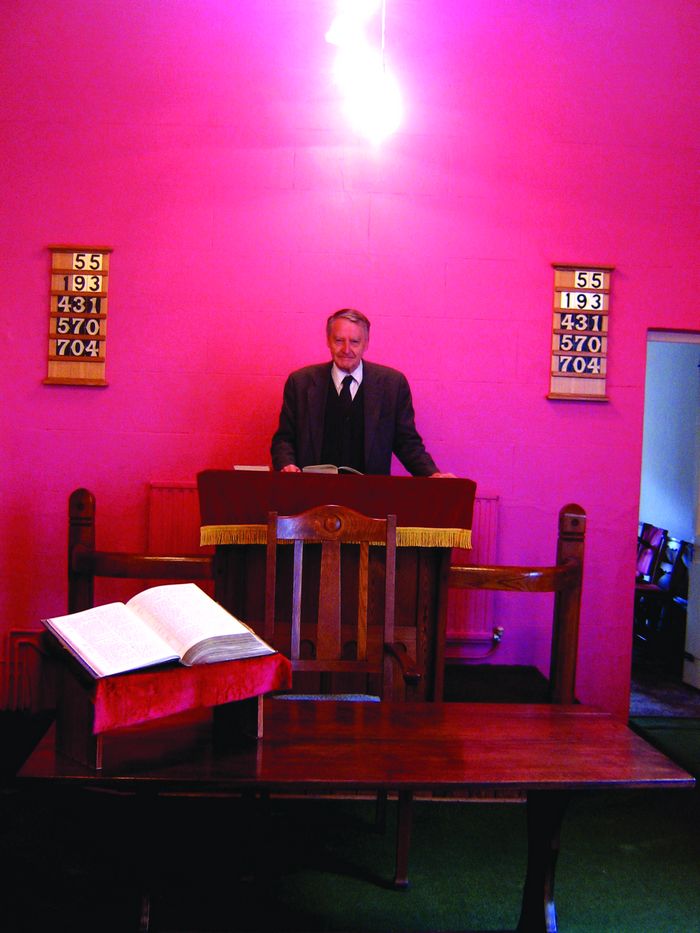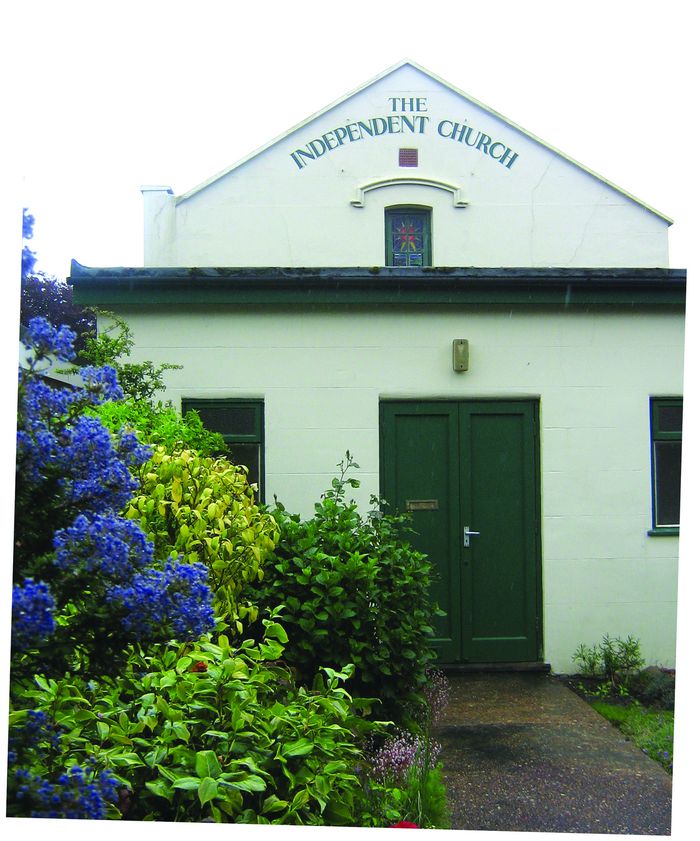Edward Preston – a man for all reasons
By Bill Third (Jun 2007)
If the recent Bohemia Bygones exhibition has awakened your interest in the rich local history of Hastings and St Leonards as a whole, then you are in luck. Monday 21st May 2007 saw the first instalment of Pieces of the Past, a series of 15 illustrated talks on various aspects of the town’s past, by the same man, at the Friends Meeting House in South Terrace in Hastings town centre. The series, which is now in its 15th year, will take place at the same venue every Monday at 10.30am, concluding on 27th August.
These talks are not only informative, but entertaining as well. The first I attended, some years ago, on Hastings stagecoaches, was opened with a fine rendition of the ‘Post-horn Gallop’ – delivered not by post-horns, but by Edward’s expert vocal mimicry. As well as being an accomplished concert singer – a devotee and performer of repertoire ranging from music hall to opera – he was also secretary of the International Dickens Fellowship for many years. Moreover, he has worked with the Old Hastings Preservation Society in assigning blue plaques to mark the association with the town of many great figures from Dante Gabriel Rossetti to Lewis Carroll and, of course, Charles Dickens.
Mr Preston has another vocation, however, in his work at the Independent Church in Albany Road, where he has been the minister for ten years. The church itself goes back 61 years, having started life as the Hastings Central Mission, and moved to its present location at the top of Albany Road in 1976. It is one of the smallest consecrated churches in the town, and one of the prettiest, set in its own garden. The interior is light, welcoming, atmospheric and tranquil. Furnishings are sober, in line with the Protestant tradition, but with some good decorative touches in colour and lighting, and two small, well-positioned stained-glass windows; the one in the eastern gable bears the following words in Hebrew and English: ‘Thy word is a light unto my path, and a lamp unto my feet’.
It is what takes place in the church that’s important, of course, and this, too, sets it apart. As well as offering spritual guidance, Edward’s Sunday services make you think, because he not only draws on his deeply held faith, his knowledge of scripture and his 35 years as a lay preacher; he contextualises his message by relating it to current events, usually with a notion of wit and humour. He also draws on his other influences and interests. For example, Edward relates Jacob’s pillow in his dream of the ladder to heaven, described in Genesis, to the belief that this was the Stone of Destiny on which generations of Scottish kings were crowned, before its removal in 1296 by Edward I, and subsequent relocation to Westminster Abbey, where it stood until the mid-1990s, having been used for the coronations of English kings for more than 700 years.
This is not to downplay the seriousness of Edward’s intent, or his adherence to the scriptures and his firm belief that they are divinely inspired. Fortunately, the leavening of relevance, understanding and forgiveness offered by Christianity are never far away, not to mention the hymns, currently sung unaccompanied – the last pianist, Cath Williams, sadly passed away on 11th May, so if you are free on Sunday mornings and could offer musical accompaniment, please give Edward a ring on 435849.
Meanwhile, for anyone seeking spiritual and intellectual stimulation, mixed with a dose of local history and humour, why not pay a visit to the Independent Church at Albany Road. Services take place on Sundays at 10.45am, and the church is also open every Wednesday from 9.30am onwards, for private prayer or for those who want to speak to Edward himself about personal or spiritual matters.
Leave a Response
You must be logged in to post a comment.



